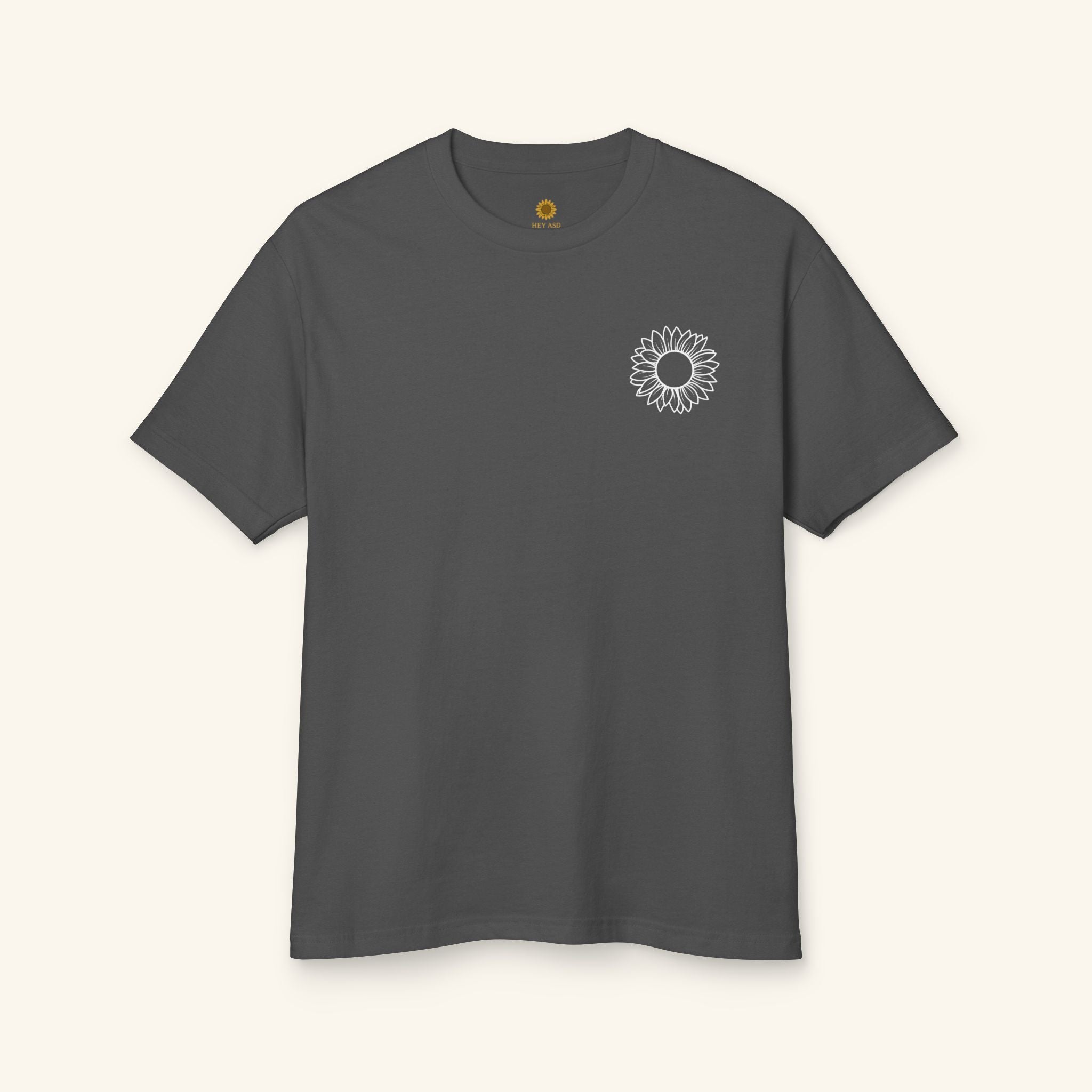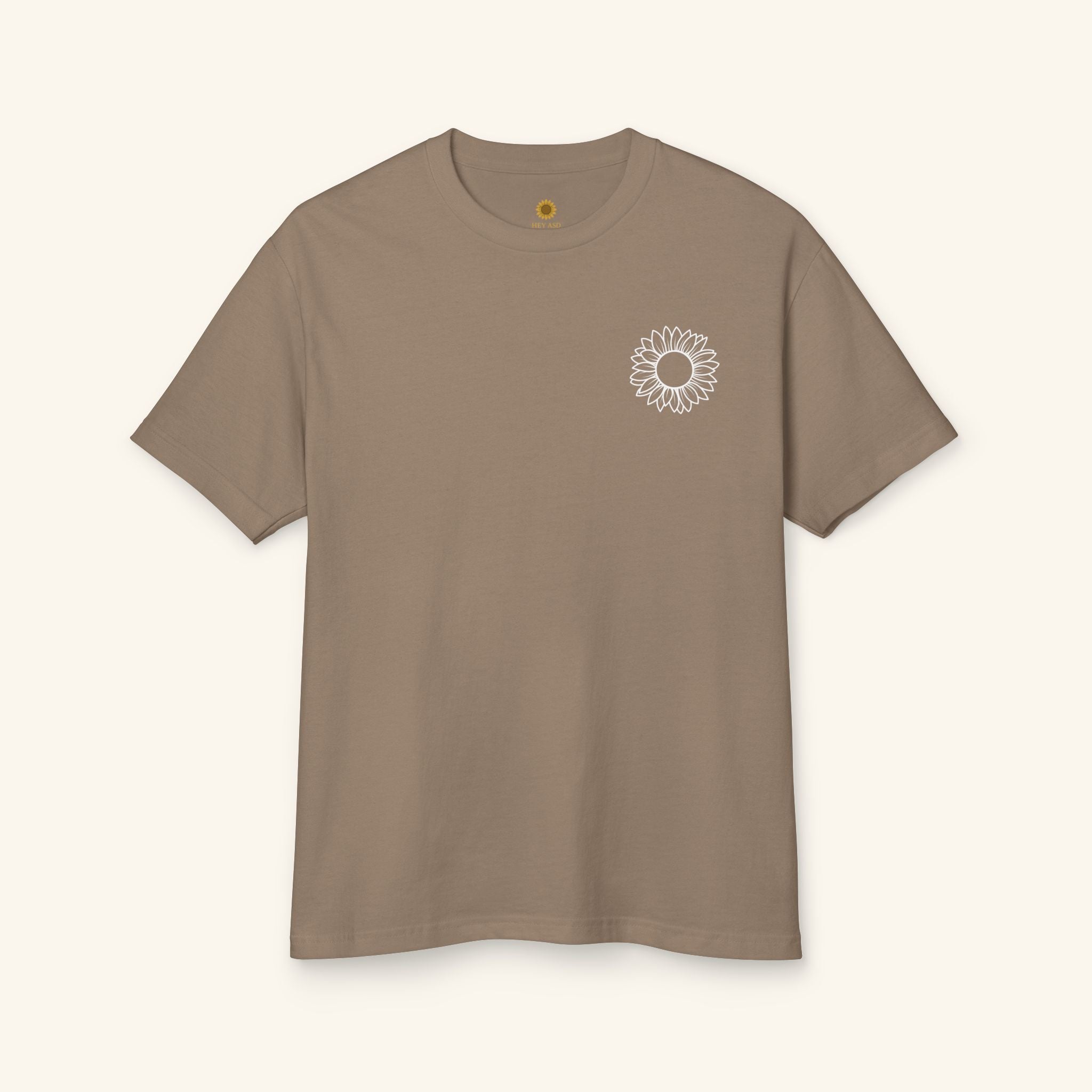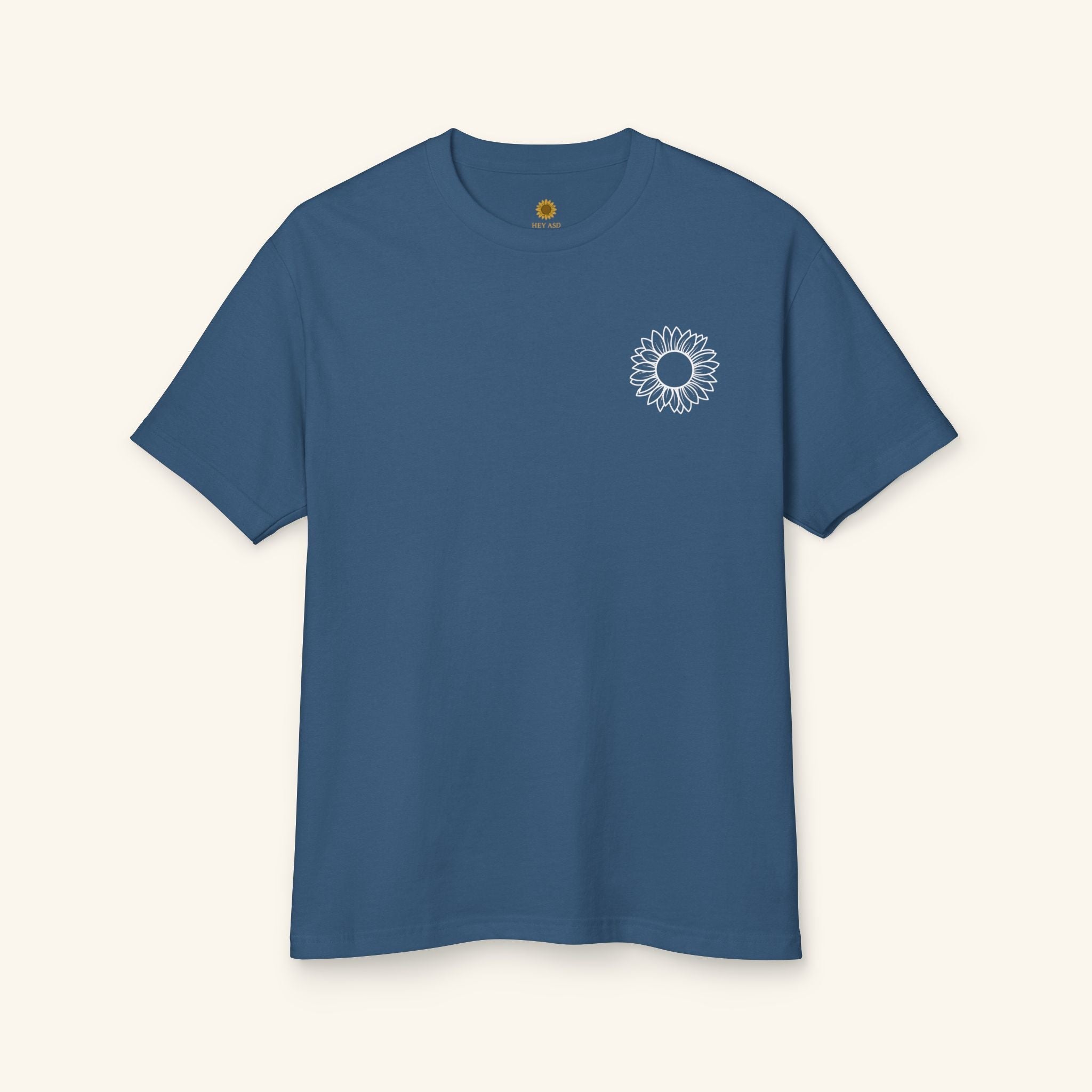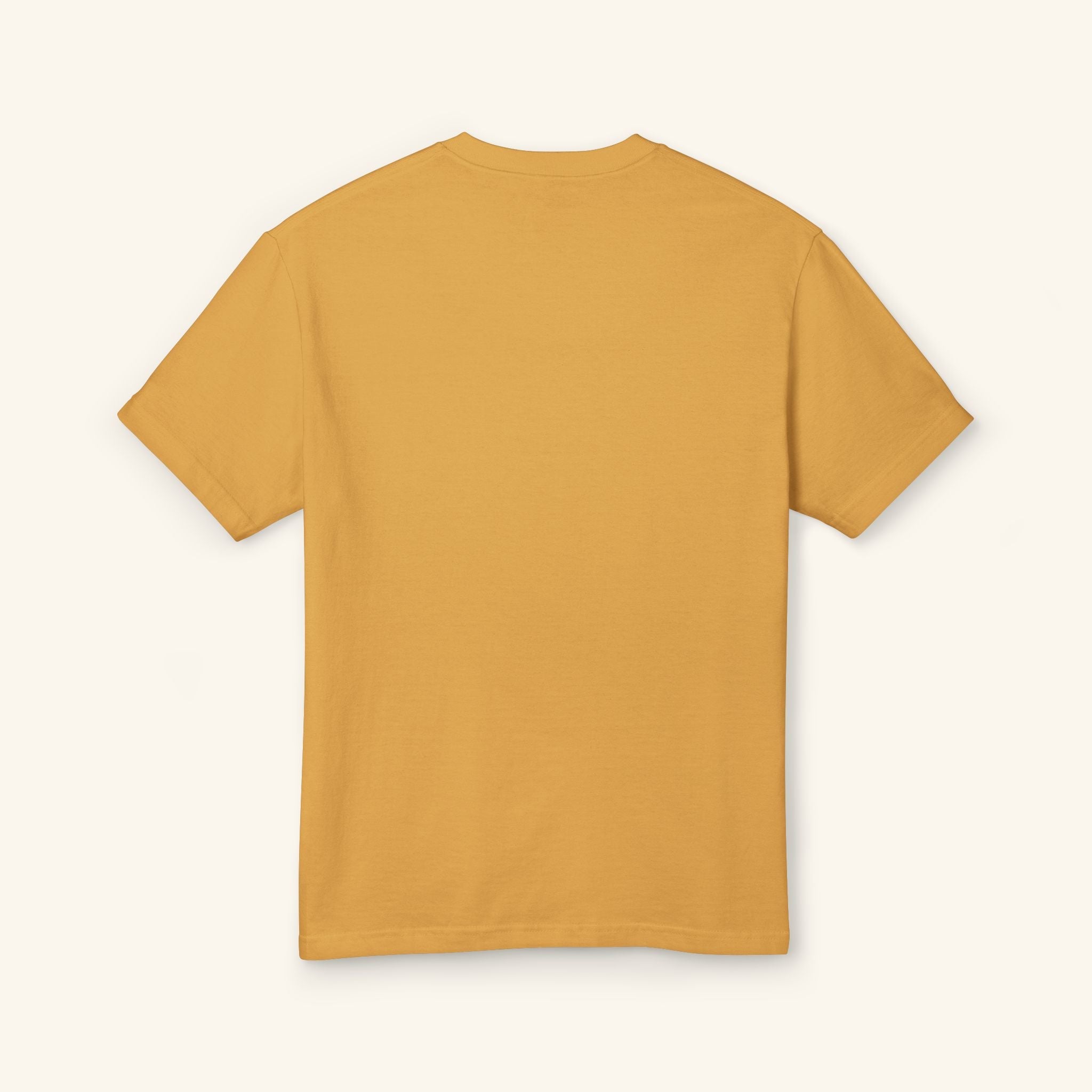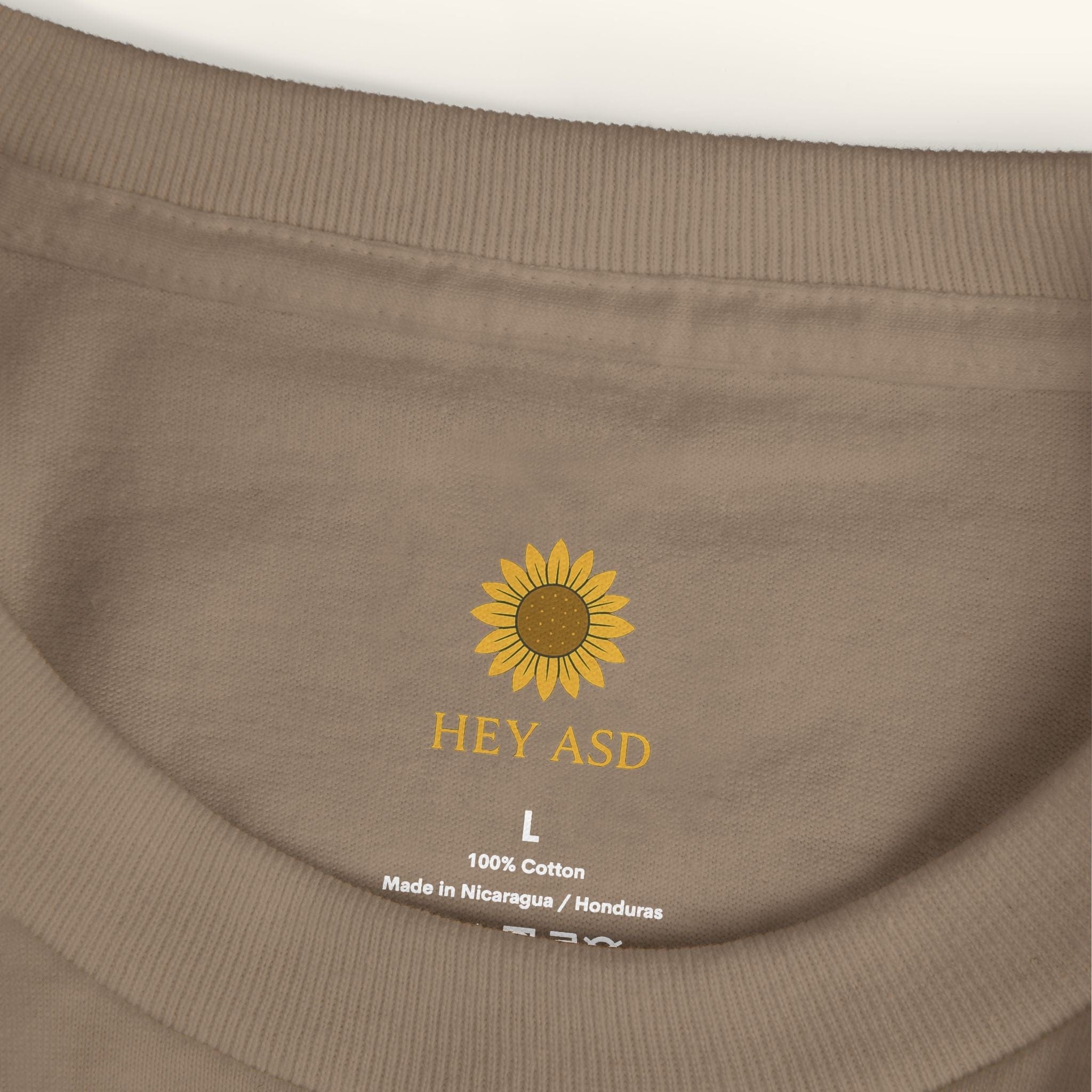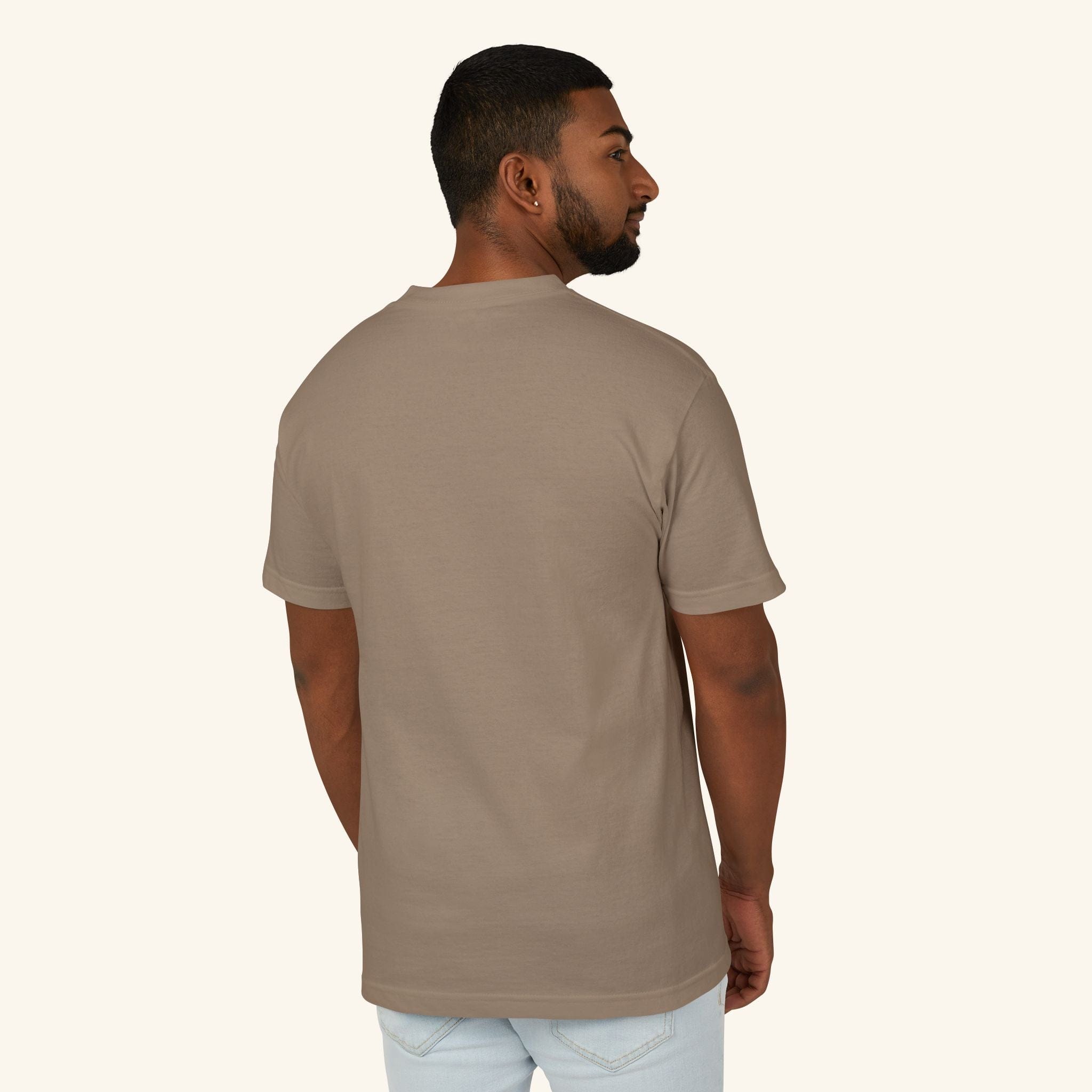Autism and Alcohol: Why We Drink, What It Means, and Finding Safer Paths

Written by the HeyASD Editorial Team
If you’re an autistic adult, your relationship with alcohol may feel tangled — sometimes comforting, sometimes harmful, often misunderstood. Many of us don’t drink to party. We drink to cope: with sensory overload, with the exhaustion of masking, with the pressure to belong in spaces that aren’t built for us. This article explores the complex intersection of autism and alcohol with gentleness and honesty. We’ll look at why alcohol can seem appealing, the hidden costs it carries, and most importantly, the safer paths to comfort and connection that affirm who we are as autistic people.
Alcohol and Autistic Adults—A Complex Relationship
Navigating the world of alcohol can be especially complicated for many autistic adults. Our experiences often intertwine with social situations where drinking can seem like the only way to fit in or manage overwhelming sensory input. Masking our true selves may lead us to use alcohol as a tool for temporary relief, but this can create a cycle that leaves us feeling more isolated and uncertain. Acknowledging this relationship fosters understanding. We are not alone in facing these challenges, and it’s vital to explore safer avenues for connection and support that honor our unique experiences.
Why This Conversation Matters
This conversation is vital because many of us are navigating it in silence. Autistic people are more likely to experience conditions that are known risk factors for substance use challenges, including anxiety, depression, and the trauma of being bullied. When we feel unsupported in difficult social situations, alcohol can feel like the only available solution to cope.
“When I was young, I didn’t have friends. At my loneliest, I remember drinking alone — not to celebrate, but to escape. For a moment, it felt like company.”
“For many autistic adults, alcohol isn’t about fun — it’s about survival in a world that feels overwhelming.” Many of us report using alcohol to manage general anxiety and social anxiety or to feel more capable of navigating social interactions.
Understanding these connections helps us move away from shame and toward support. When we acknowledge the reasons behind our choices, we can start to find alternatives that meet our needs without causing further harm. This isn't about blaming ourselves; it's about giving ourselves the grace to understand and the tools to find a better way.
Gentle Reminders About Self-Worth
Before we go any further, it’s important to pause and remember a fundamental truth: you are not broken. Your worth is not defined by your relationship with alcohol or any coping mechanism you have used to survive. Many autistic people feel a deep sense of being flawed, especially if they are struggling.
Using identity-first language, like saying "I am autistic," is a powerful act of self-acceptance. It affirms that autism is a core part of who we are, not a disease we have. This neurodiversity-affirming perspective is central to building self-worth. You deserve to feel safe, comfortable, and understood, just as you are.
If you have used alcohol to cope, it does not mean you have failed. It means you were trying to find a way to manage in a world not built for you. Acknowledging this is an act of self-compassion. It opens the door to exploring new tools with kindness, not criticism.
Challenging Stigma and Assumptions
There is a great deal of stigma surrounding both autism and substance use. For years, stereotypes suggested that autistic people were somehow immune to alcohol-related problems. This harmful assumption has made it difficult for many of us to be seen and to get the right kind of help. The psychological predictors of alcohol use, such as anxiety, are common in our community, yet the issue has remained in the shadows.
So, are people with autism more likely to develop alcohol problems compared to neurotypical people? The research is conflicting. One large Swedish study found that autistic people without intellectual disability were twice as likely to have substance-related problems. However, other studies have found lower rates of drinking among autistic people.
This contradiction highlights a major problem: our experiences are not being fully captured. Many autistic adults remain undiagnosed or are misdiagnosed, especially those who end up in treatment programs for alcohol use. Challenging these old assumptions is the first step toward creating support systems that truly understand our needs.
Why Alcohol May Feel Appealing to Us
Social situations can feel overwhelming, and many of us might lean on alcohol to ease anxiety in these moments. The temporary relief it provides can be enticing, allowing us to mask our feelings and blend in. In addition, sensory overload can make the world feel like too much, and alcohol may seem like a way to gain control temporarily. However, while it can feel like a lifeline, it's vital to remember that these feelings are common. Seeking connection in healthier ways, like through community or sensory tools, can help support our well-being long-term.
Coping With Social Anxiety and Masking
Social situations can be incredibly draining. The pressure to interpret subtle cues, make eye contact, and engage in small talk can lead to intense social anxiety. For many of us, alcohol becomes a tool to lower these barriers and make socializing feel more manageable. It can feel like it temporarily turns down the volume on our internal monologue of self-consciousness.
“Sometimes alcohol feels almost like a stim for me. It takes the edge off, gives me a flicker of calm. But the calm never lasts, and what I really want is to be loved for who I am.”
This is a form of masking, where we use alcohol to help us perform a version of "neurotypical" that feels expected in social settings. Can alcohol consumption mask the symptoms of autism? In the short term, it might feel that way. Some autistic people report that drinking helps them:
-
Feel more confident in conversations.
-
Worry less about how they are being perceived.
-
Communicate more freely without overthinking.
-
Temporarily enhance their social skills.
However, this is a fragile crutch. Relying on alcohol to mask our autistic traits can prevent us from forming genuine connections and exhaust us in the long run. It addresses the symptom (anxiety) without touching the root cause: the need for accepting and accommodating social environments.
Soothing Sensory Overload (or Trying To)
Our sensory worlds can be incredibly intense. Bright lights, loud noises, strong smells, and the feeling of certain textures can quickly lead to sensory overload. When you are feeling overwhelmed and frayed, the idea of anything that can numb or dull that input is deeply appealing. This is a key way sensory processing in autism can influence alcohol use.
“Drinking gave me temporary relief, but it also left marks I couldn’t ignore — changes to my body, my hair, my face in the mirror. The side effects stay long after the momentary comfort fades.”
Some of us turn to alcohol in an attempt to self-medicate for these sensory processing difficulties. It can feel like a way to create a buffer between ourselves and a world that feels too loud, too bright, and too much. The intention is to find relief and create a sense of calm. For example, alcohol might be used to:
-
Dull the intensity of bright lights in a bar.
-
Muffle the sound of a loud crowd.
-
Reduce the feeling of being overstimulated.
-
Create a feeling of numbness to escape discomfort.
While the desire for peace is valid, alcohol is an imprecise tool. It may offer a fleeting sense of quiet, but it often comes with a rebound effect, making us even more sensitive later on. True sensory regulation comes from tools that support our nervous system, not suppress it.
The Pull of Fitting In and Belonging
The human need to belong is powerful. For many autistic people, feeling like an outsider is a painful and persistent part of life. In many cultures, drinking is a deeply ingrained social ritual. Participating in it can feel like a shortcut to being part of the group and a way to bridge the gap between us and the general population.
“Alcohol was never about fun for me. It was about survival, about finding a way through the loneliness when nothing else felt like it could reach me.”
When you are in social situations where everyone else is drinking, the pressure to join in can be immense. Saying "no" might feel like you are highlighting your differences or risking social rejection. For some, drinking becomes less about the alcohol itself and more about holding the right prop to blend in. It’s a way to say, "I'm one of you."
This desire to fit in is completely natural. However, true belonging comes from being accepted for who you are, not for the mask you wear. Relying on alcohol for social interaction can trap us in a cycle where we never get to experience that genuine connection. It can leave us feeling even more isolated once the effects wear off.
Searching for Comfort in Overwhelming Spaces
For many autistic adults, public and social spaces are inherently overwhelming. A trip to the grocery store, a family gathering, or a night out with friends can be a minefield of sensory overload and unpredictable social demands. In these moments, the use of alcohol can feel like a desperate search for a portable comfort zone.
It’s an attempt to make an uncomfortable environment feel more tolerable. When our usual coping strategies aren't available or feel insufficient, alcohol can seem like a quick fix to reduce distress. This is often driven by a need to manage:
-
The anxiety of unpredictable environments.
-
The exhaustion from constant masking.
-
The discomfort of sensory overload.
-
Feelings of loneliness even when surrounded by people.
This search for comfort is a fundamental need. The problem is that alcohol provides a borrowed sense of ease that comes with high interest. It doesn't actually make the space safer or more accommodating; it just temporarily lowers our ability to perceive the discomfort. This can lead to a cycle of burnout and worsening mental health.
“I’ve learned that what I was really searching for wasn’t the drink itself — it was connection, safety, and acceptance. The glass was only ever a substitute for love.”
The Temporary Relief—and Its Hidden Costs
Many autistic adults find that alcohol can momentarily quiet the noise, helping us cope with overwhelming social situations or sensory overload. This relief, however, often comes with hidden costs that can weigh heavily on our mental health. While the initial effects may be soothing, alcohol use can lead to increased anxiety, sleep disruptions, and feelings of burnout. Understanding these hidden challenges empowers us to seek healthier coping strategies that nurture our well-being. Embracing support from our community, using sensory tools, and exploring new connections can guide us towards a more balanced and fulfilling life.
💚 If alcohol has ever felt like your only tool, know you’re not alone. Explore our Emotional Regulation Collection — sensory-friendly supports created for autistic adults who deserve comfort without compromise.
Short-Term Calm vs. Long-Term Strain
The calm that alcohol offers is borrowed from tomorrow. While a drink might help you get through a difficult evening, the next day can bring an amplified sense of anxiety, sensory sensitivity, and emotional dysregulation. This creates a difficult cycle: you feel bad, you drink to feel better, and the drinking ultimately makes you feel worse.
What risks do autistic people face when using alcohol or other substances? Relying on alcohol as a primary coping tool carries an increased risk of developing alcohol dependence. It can also worsen existing mental health problems like depression and anxiety. Some studies even show a connection between co-occurring autism and alcohol use with a higher risk of suicide attempts, particularly for autistic men.
This long-term strain isn't just physical or psychological; it's emotional. The constant swing between temporary relief and subsequent struggle is exhausting. It can erode your self-confidence and make it feel like you are trapped, which is why finding sustainable, healthier coping strategies is so crucial for our well-being.
How Alcohol Can Impact Sensory Processing
While some autistic adults use alcohol to try and numb sensory input, the after-effects can make our sensory processing much worse. Alcohol is a depressant that affects the central nervous system. After the initial numbing effect wears off, the brain can go into a state of hyper-arousal, making you even more sensitive to your surroundings than before.
This rebound effect means that the very thing you were trying to escape—sensory overload—can come back stronger. A light that was merely annoying yesterday might feel blinding today. The low hum of the refrigerator could become an unbearable roar. This is one of the most direct ways the effects of alcohol can backfire on us.
Understanding this contrast is key. The temporary fix creates a bigger problem later on, making it harder to regulate. Here is how it can break down:
|
Perceived Short-Term Benefit |
Actual Long-Term Impact |
|---|---|
|
Dulls bright lights and loud sounds |
Increases sensitivity to light and sound the next day |
|
Creates a feeling of physical numbness |
Can lead to clumsiness and poor body awareness (proprioception) |
|
Reduces awareness of uncomfortable textures |
Heightens tactile sensitivity and irritation |
|
Quiets internal sensory "noise" |
Can cause "hangxiety" and internal restlessness |
The Toll on Executive Function and Daily Life
Many autistic people already navigate challenges with executive function. This includes skills like planning, organizing, initiating tasks, and regulating emotions. Alcohol directly impairs these very functions, making daily life even more difficult. The morning after drinking, you might find it nearly impossible to get started on your to-do list or manage your time effectively.
This impact goes beyond a simple hangover. Regular alcohol use can create a chronic strain on your executive functioning skills. You might notice increased difficulty with working memory, making it harder to follow conversations or remember instructions. Your ability to self-regulate, already a challenge for many of us, can be severely compromised, leading to more frequent meltdowns or shutdowns.
This toll on executive function can create a vicious cycle. When you feel overwhelmed and unable to cope with daily tasks, the idea of drinking to escape that feeling can become more tempting. This can increase the risk of developing an alcohol use disorder, further damaging the cognitive skills needed to manage life and seek help.
Links to Burnout, Depression, and Sleep Disruption
Autistic burnout is a state of profound exhaustion caused by the cumulative stress of navigating a world not designed for us. Alcohol consumption can be a significant contributor to this burnout. The cycle of drinking to cope, followed by the increased strain of recovery, depletes our already limited energy reserves and pushes us closer to a state of collapse.
Furthermore, there is a strong link between alcohol use and depression. While some may drink to lift their mood, alcohol is a depressant that can worsen or even trigger depressive episodes. For autistic people who may already be prone to mental health challenges, this is a serious risk. That temporary relief can quickly give way to a much deeper and more persistent low.
Sleep disruption is another major factor. Many of us already struggle with sleep, and while alcohol might make you feel sleepy initially, it severely disrupts the quality of your rest. It suppresses REM sleep, which is vital for emotional regulation and memory consolidation. Waking up after a night of drinking often leaves you feeling unrested and less equipped to handle the day's challenges.
Understanding Our Unique Risks Around Alcohol
Many autistic adults face unique risks related to alcohol use. Increased social pressure can lead us to drink, especially in social situations where we may feel anxious or overwhelmed. This can create a cycle, where the use of alcohol seems to temporarily alleviate discomfort but may worsen sensory processing difficulties or lead to feelings of isolation.
Moreover, risk factors such as co-occurring mental health challenges can amplify the potential for substance use. Understanding these dynamics is essential for navigating our relationship with alcohol in a supportive and compassionate way.
Navigating Social Pressures in Gatherings
Social gatherings can feel like a minefield of unwritten rules and expectations. For autistic people, the pressure to drink can be one of the most challenging aspects of these events. It is often presented as a non-negotiable part of the social script, and opting out can feel awkward or isolating.
This pressure is a significant risk factor. It can lead us to drink not because we want to, but because we feel we have to in order to be accepted. We might worry about:
-
Being questioned or judged for not drinking.
-
Standing out as different from the group.
-
Appearing rude or unsociable.
-
Lacking the social skills to gracefully decline.
Learning to navigate these social situations without relying on alcohol is a skill, and it's one we can build. It often involves having a plan, like bringing your own non-alcoholic drink or preparing a simple, firm response. Your comfort and safety are more important than conforming to someone else's expectations of a "good time."
Communication Changes When Drinking
Many of us already experience challenges with social communication. We might be very direct, miss subtle cues, or find it hard to process verbal information in real-time. Alcohol consumption scrambles these communication lines even further, for everyone. But for an autistic person, the impact can be particularly disorienting.
While some of us might feel that alcohol "loosens our tongue" and helps us communicate more freely, it also impairs judgment and processing. You might find it even harder to read a social situation or understand another person's intent. This can lead to misunderstandings, conflict, or situations where you feel unsafe or vulnerable.
The perceived benefit of easier communication is often an illusion. Alcohol doesn't teach you new social skills; it just lowers your inhibitions and your ability to self-monitor. This can be a risky trade-off, as it might lead you to say or do things that you later regret, adding another layer of anxiety and stress to your mental health.
Co-Occurring Challenges: ADHD, Anxiety, and Depression
It is very common for autistic adults to also have other conditions like attention deficit hyperactivity disorder (ADHD), anxiety, or depression. These co-occurring challenges can create a perfect storm of risk factors for developing an unhealthy relationship with alcohol. Each condition brings its own set of struggles that alcohol can seem to temporarily soothe.
For example, someone with co-occurring ADHD might struggle with impulsivity, making it harder to regulate alcohol intake. Someone with anxiety or depression may be using alcohol to self-medicate their symptoms, a strategy that almost always backfires in the long run. Research shows that having co-occurring ADHD significantly raises the risk for substance use problems in autistic people. Key links include:
-
ADHD: Impulsivity and a drive for stimulation can lead to riskier drinking patterns.
-
Anxiety: Alcohol is often used to quiet a racing mind or ease social fears.
-
Depression: Drinking may be an attempt to numb emotional pain or find a moment of pleasure.
This overlap underscores why a holistic, neurodiversity-affirming approach to mental health is so important. Treating the underlying anxiety or providing support for ADHD can reduce the need to turn to alcohol in the first place.
Addiction Risk—Not a Personal Failing
If you find yourself struggling with alcohol, it is crucial to hear this: it is not a moral failing or a weakness of character. For autistic people, the path to a substance use disorder can be paved with attempts to cope with a world that feels hostile and overwhelming. The risk is not in our wiring, but in the mismatch between our needs and our environment.
Some autistic traits, like rigid thinking or a tendency toward repetitive behaviors, can make it harder to change a pattern once it's established. If drinking becomes part of a daily routine to de-stress after a day of masking, that routine can be very difficult to break. This is a neurological reality, not a personal flaw.
Acknowledging this risk is about self-awareness, not self-blame. It's about understanding that our brains work differently and that we may need different kinds of support to change our habits. Reaching out for help from a professional who understands autism and mental health is a sign of immense strength and self-respect.
Common Experiences: Stories From Our Community
Sharing our stories is essential in understanding our experiences with alcohol. Many autistic adults navigate the social world differently, often feeling pressure to drink in social settings. This can lead to increased consumption as a way to mask anxiety or sensory overload. Within our community, stories reveal that some find temporary relief in alcohol while grappling with its aftereffects, like fatigue and emotional struggles.
Many of us know the longing for connection, even as we acknowledge the challenges that come with it. Here, we validate each other’s journeys, reminding ourselves we are never alone.
“Alcohol Helped Me Blend In—Until It Hurt”
A common story among autistic people is using alcohol as a social lubricant. "I started drinking in college because it felt like the only way I could handle parties," one person might share. "Suddenly, I could make small talk. I felt like I finally fit in." This experience of alcohol use making social interaction feel easier is a powerful motivator.
For a while, it can feel like a magic key that unlocks a world of social connection that was previously inaccessible. The fear of saying the wrong thing or appearing awkward seems to melt away. This reinforces the idea that alcohol is a necessary tool for social survival, a way to seem more like everyone else.
However, this strategy often has a painful turning point. The story continues: "But then I started to rely on it. I couldn't imagine socializing without it. The hangovers got worse, my anxiety skyrocketed, and I realized I wasn't blending in; I was disappearing." This journey from social aid to source of pain is a critical one, highlighting the unsustainable nature of using alcohol to mask.
“Sensory Overload Made Me Seek Out Numbness”
For many autistic adults, the world is a constant barrage of sensory information. "After a day at work under fluorescent lights and with constant background noise, I would come home feeling completely frayed," an autistic person might explain. "A few glasses of wine felt like the only way to turn down the volume in my head and stop feeling so raw."
This use of alcohol to create a sense of numbness is a direct response to sensory overload. When your nervous system is in a state of high alert, the depressant effects of alcohol can feel like a welcome relief. It’s an attempt to find a moment of peace in a body that feels constantly overstimulated.
The problem is that this numbness is temporary and comes at a cost. "The next morning, my sensitivity would be even worse," the story often goes. "Sounds were louder, lights were brighter, and I felt less capable of coping than before." This demonstrates how alcohol, while used to manage sensory traits, ultimately makes them more difficult to live with.
“I Didn’t Realize I Was Masking With Alcohol”
Many of us, especially those who received a late diagnosis of autism, spend years trying to figure out why we feel so different. For some, alcohol consumption becomes an unconscious tool for masking. "I just thought I was an introvert with social anxiety," someone might say. "I drank to be more outgoing and fun, to be the person I thought everyone wanted me to be."
In these situations, alcohol isn't just about easing anxiety; it's about performing a completely different personality. It props up the mask that hides our authentic, autistic selves. This can go on for years, with the person never realizing that their drinking is so deeply intertwined with the exhausting effort of pretending to be someone they're not.
The realization often comes with a diagnosis or a period of autistic burnout. "When I learned I was autistic, it all clicked into place," the person might reflect. "I wasn't drinking to be more 'me.' I was drinking to be less 'me.' It was a profound and sad realization, but it was also the first step toward learning how to unmask and live more authentically."
Myths and Realities: Alcohol Use and Autism
Many of us have faced misconceptions about our relationship with alcohol. It’s crucial to recognize that drinking often serves as a coping mechanism for dealing with overwhelming feelings or social situations. This reliance can lead to a complex dynamic where alcohol may provide temporary relief, but also intensifies challenges like sensory overload and social anxiety.
Understanding that alcohol's effects can vary greatly for autistic adults is essential. We can learn from our experiences and each other, fostering community support that prioritizes healthier coping strategies. Embracing our uniqueness can guide us toward safer connections and self-acceptance.
Addressing Stereotypes About Neurodivergence and Drinking
One of the most persistent stereotypes is that autistic people are uninterested in socializing and therefore not exposed to alcohol. This is based on a narrow and inaccurate view of what it means to be autistic. Many of us are social beings who desire connection, even if we go about it differently. We attend college, have jobs, and participate in social activities where drinking is common.
Another harmful stereotype portrays autistic people as "innocent" or childlike, which can lead healthcare providers to dismiss the possibility of an alcohol use disorder. This stigma can prevent us from being screened or offered appropriate mental health services. It creates a dangerous blind spot where autistic people who are struggling can easily fall through the cracks.
The reality is that neurodivergence does not make someone immune to life's challenges. We are just as human as anyone else. Addressing these stereotypes is crucial for ensuring that autistic people are seen as whole individuals who may require support for the full spectrum of human experiences, including challenges with alcohol.
Is Alcohol Use Less Common—or Simply Less Visible?
Some studies do report that autistic adults have lower rates of alcohol consumption and are more likely to be abstainers compared to the general population. This has contributed to the myth that we simply don't drink. However, this data may not be telling the whole story. Could it be that our drinking is just less visible?
For example, an autistic person might be more likely to drink at home alone to decompress from sensory overload, rather than drinking socially in a bar. This pattern of use would be less visible to researchers and society at large. Furthermore, many autistic adults are undiagnosed, so they wouldn't be included in studies focused on diagnosed populations.
It's also possible that certain autistic traits, like a lower interest in novelty-seeking or a strong adherence to rules, might be protective factors for some. The key takeaway is that the relationship is complex. Instead of making broad generalizations, it is more helpful to acknowledge the wide diversity of experiences within our community.
Why Research Can Miss Lived Experience
There has been very little research focused specifically on alcohol use and autism, and the studies that do exist often have limitations that can cause them to miss the reality of our lived experience. Many studies rely on diagnostic records, which automatically exclude the large number of undiagnosed autistic adults.
Furthermore, research tools and questionnaires may not be designed with autistic traits in mind. A question about drinking "to be social" might not capture the experience of an autistic person drinking to endure a social situation. This is why research can miss lived experience; it often isn't asking the right questions or using the right methods. Some limitations include:
-
Small Sample Sizes: Many studies involve a small number of participants, making it hard to draw firm conclusions.
-
Exclusion of Undiagnosed People: A significant portion of the community is left out.
-
Lack of Qualitative Data: Numbers and statistics don't capture the "why" behind our alcohol use.
-
Recruitment Bias: Studies often recruit from clinics, missing those who drink at home or are not seeking help.
To truly understand this issue, we need more research that is co-produced with the autistic community, centering our voices and experiences.
Healthier Ways to Self-Regulate and Connect
Finding healthier ways to self-regulate and connect can make a significant difference in our lives. Many autistic adults benefit from sensory tools like weighted blankets and calming music, which help create a comforting environment. Non-alcoholic social rituals, such as enjoying mocktails or tea with friends, allow us to bond without pressure.
Engaging in community groups and therapy provides safe spaces for sharing experiences and feelings. Remember, reaching out for support isn’t a weakness; it’s a step towards finding better tools for connection and comfort. Embracing these strategies empowers us to navigate our world confidently.
Sensory Comfort Tools (Weighted Blankets, Stimming, Calming Music)
One of the most powerful alternatives to alcohol for sensory regulation is building a personalized sensory toolkit. Instead of numbing your sensory processing system, these tools work with it to provide calming and organizing input. They are a direct and effective way to manage overwhelm without the negative side effects.
Stimming, or self-stimulatory behavior, is a natural and healthy way for many autistic people to self-regulate. Whether it's rocking, flapping your hands, or fidgeting with an object, allowing yourself to stim freely is a radical act of self-care. It's your body's own way of managing input. Many find autism jewelry to be a discreet and helpful stim tool. Other effective tools for your sensory diet include:
-
Weighted Blankets:
Sensory blankets and lap pads provide deep pressure, which can be incredibly calming to the nervous system. -
Calming Music or Noise-Canceling Headphones: Curating your auditory environment gives you control over sensory input.
-
Soft Lighting: Replacing harsh overhead lights with lamps or dimmable bulbs can make a space feel much safer.
-
Comfortable Clothing: Wearing soft, seamless fabrics or cozy
autism hoodiescan reduce tactile irritation.
Non-Alcohol Social Ritual Alternatives (Mocktails, Tea, Online Spaces)
So much of drinking is about the ritual: the clinking of glasses, the special occasion, the act of preparing a drink. We can create new, healthier social rituals that provide the same sense of structure and intention without the alcohol. This helps satisfy the desire for a special beverage or a way to mark the transition from work to relaxation.
Creating delicious and visually appealing mocktails can be a fun and creative hobby. Having a fancy glass with a festive, non-alcoholic drink can help you feel included in social settings without compromising your well-being. Other ideas for new rituals include:
-
Exploring different varieties of herbal tea.
-
Making a special pot of coffee or hot chocolate.
-
Infusing water with fruit and herbs.
-
Having a go-to order at cafes, like a steamer or Italian soda.
For autistic people, finding social connection in spaces that don't revolve around alcohol is also key. Online communities and forums for autistic adults can be wonderful places to connect with others who "get it," allowing for authentic interaction without the pressure to mask or drink.
Building Supportive and Judgment-Free Peer Communities
One of the most powerful antidotes to using alcohol for social connection is finding a community where you can be your authentic self. When you are surrounded by people who understand and accept you, the need to mask or force yourself to fit in diminishes. These peer communities are spaces of mutual support and shared understanding.
Finding your people can take time, but it is a worthwhile endeavor. Look for groups, both online and in-person, that are specifically for and by autistic adults. These spaces often have a culture of acceptance where different communication styles are welcome and sensory needs are respected. This is where true belonging can flourish, based on genuine connection rather than a shared substance.
This sense of community is vital for our mental health. It reminds us that we are not alone and that our experiences are valid. Whether it's a book club, a gaming group, a special interest forum, or a local meetup, connecting with other autistic people can be a deeply healing and affirming experience that reduces the pull of unhealthy coping mechanisms.
Finding Peer and Professional Support
Reaching out for support can be empowering. Many autistic adults find comfort in connecting with peers who share similar experiences. Community groups offer a safe space for sharing, understanding, and validation. Professional help, like therapists familiar with autism, provides tools tailored to our needs.
Options abound, from local support groups to online platforms. Using autism apps and AI tools can enhance our journey. Remember, seeking support is a strength, not a weakness. Embracing both peer and professional support paves the way toward healthier coping mechanisms and deeper connections.
Therapy Options That Feel Truly Safe
Finding a therapist who "gets" autism can be a game-changer. A truly safe therapeutic space is one where you don't have to educate your therapist about what it means to be autistic. Look for mental health services and professionals who explicitly state that they are neurodiversity-affirming or have experience working with autistic adults.
When searching for a therapist, you can check directories on secure websites of professional organizations and filter for specialists in autism. During an initial consultation, it's okay to ask questions about their approach. Do they understand masking and autistic burnout? Are they familiar with sensory needs? You have the right to find someone who makes you feel seen and validated.
An autistic-informed therapist can help you explore the root causes of your drinking, develop healthier coping strategies, and work through any co-occurring mental health challenges like anxiety or depression. They will understand that the goal isn't to "fix" your autistic traits but to help you build a life that honors them.
Exploring Peer-Led Groups and Autistic Spaces
Professional therapy is not the only path to support. Peer-led groups can be an incredibly powerful resource for healing and connection. These are spaces where you can talk openly with other autistic people who have similar lived experiences. The feeling of being truly understood by someone who has been there can be profoundly comforting.
These groups can be focused on a variety of topics, from general autistic life to more specific challenges like recovery from substance use. Some researchers are even developing online group interventions designed by and for autistic adults who have challenges with substance use, recognizing the "hunger for intervention" in our community.
Finding these spaces can involve some searching, but they are out there. Here are a few places to look:
-
Online forums and social media groups dedicated to autistic adults.
-
Local autism advocacy organizations, which may run support groups.
-
Recovery programs that have specific meetings for neurodivergent people.
-
Special interest
communitygroups where you can connect over a shared passion.
When to Seek Out Support Lines or Medical Guidance
If alcohol feels like the only tool you have, or if you are concerned about your level of dependence, seeking medical guidance is a brave and important step. Your physical safety is a priority. Talking to a trusted doctor can help you assess your situation and make a safe plan for any changes you want to make.
It's important to be honest with your doctor about both your alcohol use and the fact that you are autistic. This context is crucial for them to provide the right kind of support. They can offer resources and, if necessary, guide you through a safe process of reducing your intake, as stopping abruptly can be dangerous for some people.
In moments of crisis or when you just need to talk to someone immediately, support lines can be a lifeline. Many mental health and substance use hotlines are available 24/7. While they may not all have specific training in autism, they can provide immediate, confidential support in a moment of need. Reaching out is always the right thing to do.
Moving Forward With Self-Awarness and Self-Compassion
Self-awareness is a powerful ally for many autistic adults as we navigate our relationship with alcohol. Recognizing our unique triggers and responses fosters understanding and compassion within ourselves. Embracing self-compassion invites us to honor our feelings, acknowledging that seeking comfort is a shared experience, not a failure. As we move forward, exploring healthier coping strategies can be liberating.
This journey may include finding supportive communities, using sensory tools like sensory blankets, and enjoying activities that resonate with our interests. Remember, nurturing our well-being is not just necessary; it is our right.
Reframing “Comfort” as a Basic Need
For too long, many of us have been taught that our comfort is a luxury or an inconvenience to others. We have been told to "just deal with" sensory pain or social anxiety. It is time to reframe this. For autistic people, comfort is not a luxury; it is a fundamental need, as essential as food and water.
When your nervous system is in a constant state of stress, you cannot thrive. Prioritizing your comfort is how you create the baseline of safety needed for self-regulation and good mental health. This means giving yourself permission to leave overwhelming situations, use sensory tools without shame, and advocate for your needs.
Your comfort is your right. It is the foundation upon which you can build a stable and fulfilling life. When you start treating your own comfort as non-negotiable, you reclaim your power and reduce the need for external, unhealthy coping mechanisms like alcohol.
Building Safer Coping Strategies for Stress
Building a new set of coping strategies is an active and ongoing process. It’s about replacing the one-size-fits-all, temporary fix of alcohol with a diverse toolkit of strategies that genuinely address the root of your stress. This is a creative and personal journey of discovering what truly works for you.
Start by identifying your biggest stress triggers. Is it sensory overload? Social anxiety? The exhaustion of masking? Once you know the source of the stress, you can match it with a targeted strategy. For example, if you know a social event will be draining, plan for recovery time afterward. Building your personal list of safer coping strategies is key for autistic adults. Some ideas include:
-
A "Decompression" Routine: After a stressful day, have a go-to routine like listening to a specific album or wrapping yourself in a
sensory blanket. -
Movement: Gentle movement like stretching, walking, or dancing can help release stored tension.
-
Special Interests: Engaging deeply with your passions is one of the most powerful forms of autistic joy and stress relief.
-
Mindfulness for Our Brains: This might mean focusing on a single stim toy rather than traditional meditation.
Small Steps Toward Positive Change
Change can feel overwhelming, especially when we are already feeling depleted. The key is to focus on small, manageable steps. You do not have to overhaul your entire life overnight. A single, small change can create a ripple effect of positive momentum. It's about progress, not perfection.
What is one small thing you could do today to support yourself? Maybe it’s drinking a glass of water before you consider an alcoholic beverage. Perhaps it's researching a new herbal tea or allowing yourself five minutes of uninterrupted stimming. These small actions build self-trust and demonstrate to yourself that you are capable of change.
Remember to be kind to yourself. There will be good days and hard days. If you stumble, it doesn’t erase your progress. Every moment is a new opportunity to make a choice that aligns with your desire for well-being. You are learning a new way of being, and that takes time, patience, and a whole lot of self-love. If this resonates, know you’re not alone. Explore tools like our autism app and other resources made for autistic adults at HeyASD.
Your comfort is not a luxury — it’s your right.
Discover our Emotional Regulation Collection, designed by and for autistic adults to support calm, connection, and self-acceptance.
Conclusion
Embracing our unique paths is vital. For many autistic adults, navigating the relationship with alcohol can bring up feelings of confusion and vulnerability. Remember, your comfort is not a luxury—it’s your right. As we seek healthier ways to connect and regulate, it’s essential to know that we deserve supportive tools. Sharing experiences within our community can empower us, and reaching out for help is a sign of strength. Together, we can explore resources that honor our sensory needs and promote our well-being. You are not alone on this journey.
Key Takeaways: Autism and Alcohol
- Alcohol use among autistic adults is complex — often tied to masking, social anxiety, or coping with sensory overwhelm rather than “partying.”
- Short-term relief comes with hidden costs — alcohol can worsen sensory sensitivities, executive function challenges, and autistic burnout.
- Belonging plays a big role — many of us drink to fit in socially, but this can deepen feelings of isolation rather than reduce them.
- Research is conflicting — some studies suggest autistic adults are at higher risk of alcohol-related problems, while others suggest lower overall use. Lived experience tells a more nuanced story.
- Healthier alternatives exist — sensory tools, stimming, mocktails, tea rituals, community support, and safe autistic spaces offer comfort without compromise.
- Stigma is harmful — stereotypes that autistic people don’t drink or can’t struggle with alcohol keep us unseen and unsupported.
- Seeking help is strength, not weakness — reaching out to an autistic-informed therapist, peer group, or support line can provide real tools for change.
- You are not broken — your worth is not defined by alcohol use or coping mechanisms. Comfort is your right, not a luxury.
Frequently Asked Questions
Does alcohol affect autistic adults differently than neurotypicals?
Yes, alcohol often affects autistic adults differently due to sensory sensitivities, social anxiety, and coping mechanisms. These factors can lead to increased risks of addiction and adverse effects, highlighting the importance of understanding individual responses compared to neurotypical experiences.
What are some alternatives to alcohol for managing sensory overload or social anxiety?
Alternatives to alcohol for managing sensory overload or social anxiety include mindfulness practices, physical exercise, engaging in creative hobbies, and using sensory tools like noise-canceling headphones. Building connections through support groups can also provide comfort without relying on substances for coping.
How can I find a therapist or support group that truly understands autistic experience?
To find a therapist or support group that understands the autistic experience, seek recommendations from community organizations or online forums. Verify their qualifications and experience with autism. Consider interviews to discuss approaches and ensure they align with your needs for effective support.
On This Page
Frequently asked questions
Do autistic people experience alcohol differently?
Are autistic adults more likely to have alcohol problems?
Why do some autistic people drink alcohol in social situations?
Does alcohol help with autistic masking?
Can alcohol worsen sensory overload for autistic people?
What support is available if I’m autistic and worried about drinking?
Are there healthier alternatives to alcohol for autistic adults?
How can I handle social pressure to drink if I’m autistic?
What should I do if alcohol feels like the only tool I have?

About the HeyASD Editorial Team
Autistic‑owned • Values‑led • Sensory‑friendly design
We are autistic creators, writers, and advocates dedicated to producing resources that are practical, sensory-aware, and grounded in lived experience. Our mission is to make information and products that support the autistic community accessible to everyone, without jargon or condescension. Learn more about our team.
This article is written from lived autistic experience and an evidence-aware perspective. It is for general informational purposes only and should not be taken as medical, legal or therapeutic advice.
Always consult a qualified clinician or occupational therapist for individual needs and circumstances.

About Our Autism Blog
HeyASD isn’t just a store, it’s a calm, supportive space created by and for autistic adults. Our blog shares sensory-friendly tips, identity-affirming stories, and heartfelt resources for navigating life as an autistic person. Whether you're late-diagnosed, exploring your needs, or supporting someone you love, you're welcome here.
Thank you for reading. We hope these resources bring comfort and clarity.






















